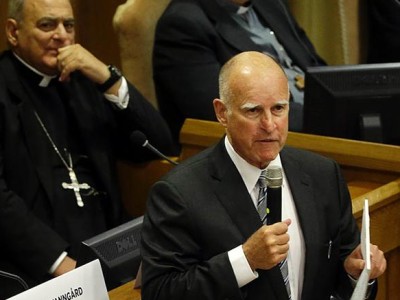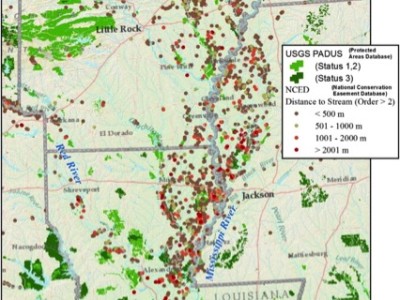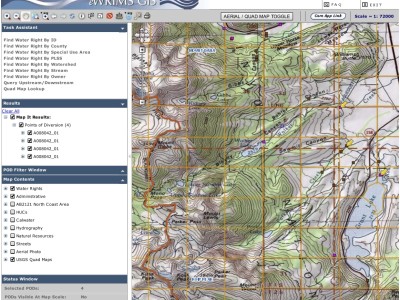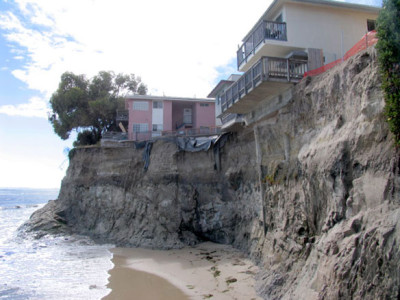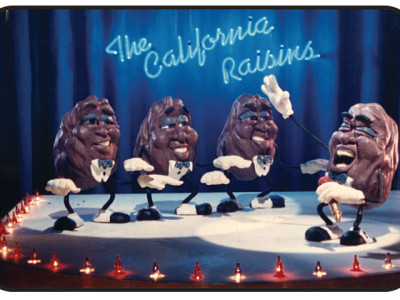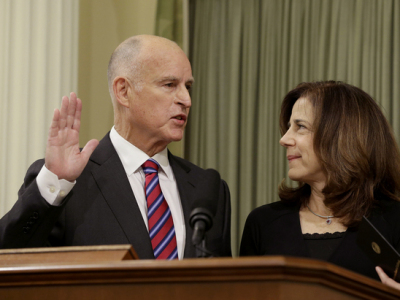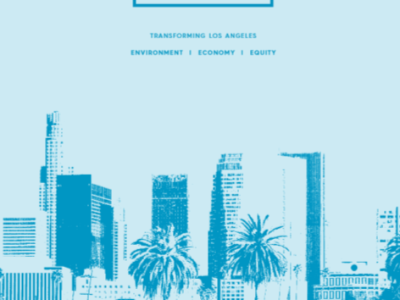Climate Adaptation
California Governor Jerry Brown: Environmental Saint or Sinner?
Brown’s National & International Environmental Reputation Disputed by Some California Environmentalists
California Governor Jerry Brown has had a most eventful 2015, especially when it comes to environmental policy. He started the year fresh from an overwhelming election victory last November, earning him an unprecedented fourth term as California’s chief executive. Brown began 2015 by declaring a state drought emergency and becoming California’s “educator-in-chief,” repeatedly warning state …
Continue reading “California Governor Jerry Brown: Environmental Saint or Sinner?”
CONTINUE READINGCould a Riparian Conservation Network increase the ecological resilience of public lands?
A new article suggests river corridors could leverage existing policies to build habitat connectivity
As we try to protect biological diversity for the future, a perpetual challenge is ensuring that the strategies we adopt today will continue to work in the face of changing conditions. How can we design conservation approaches that will be resilient in the face of environmental challenges that will only become more severe in coming years? …
CONTINUE READINGA Water Rights Database For California’s Future
A proposal to modernize information for management of water resources
In April, a group of us (Richard Roos-Collins, Michael Kiparsky, Nell Green Nylen, Michael Hanemann, and Holly Doremus) wrote a document arguing for the need to develop a more complete and functional source of legal information on California’s water rights. Since then, this proposal has been circulated widely among the California water community. In the spirit of …
Continue reading “A Water Rights Database For California’s Future”
CONTINUE READINGSaving California’s Beaches
New expert report offers recommendations for shoreline armoring management
As California’s beach goers and residents well know, erosion and climate change are already impacting the California coastline. Eighty percent of California’s coast is actively eroding, and the latest science projects that sea levels may rise up to 5 additional feet along much of the coast by the end of this century. Higher sea levels …
Continue reading “Saving California’s Beaches”
CONTINUE READINGDrought and the Supreme Court
Does the Court’s Decision in the Raisin Case Imperil Water Management?
When I first read Rick’s writeup of the Supreme Court’s decision in USDA v. Horne, concerning the federal government’s Depression-era system of “marketing orders” that required farmers to set aside a percentage of their raisin crop in a government-controlled account, I was worried about water. And that’s not just because I always worry about water. Horne turned on …
Continue reading “Drought and the Supreme Court”
CONTINUE READINGTracking Coastal Adaptation
Implementing CA’s Innovative Sea Level Rise Planning Database
Higher sea levels are already affecting California’s 3400 miles of coastline, millions of coastal residents, economy, buildings, and critical infrastructure. Yet, oddly enough for a state that is a worldwide leader in climate change mitigation, California has only recently begun to focus seriously on sea level rise adaptation. Recent reports have cited a lack of preparedness …
Continue reading “Tracking Coastal Adaptation”
CONTINUE READINGWhat Will Driverless Cars Do To The Climate?
A Formidable Challenge for Policymakers and Modelers
It’s no longer a question of whether driverless cars will appear on the market; it’s when and how many. The answers so far seem to be: 1) soon; and 2) lots. German automakers are so confident of this that they are already negotiating with Nokia to compete to Google’s self-driving cars. For Legal Planet, that means we …
Continue reading “What Will Driverless Cars Do To The Climate?”
CONTINUE READINGCalifornia Sets 2030 Climate Emissions Target
And it looks like the right goal
Today, California Governor Jerry Brown signed an executive order setting a statewide greenhouse gas emissions target to be achieved by 2030, at 40% below 1990 levels. It’s an historic announcement that puts California in the vanguard of jurisdictions who have committed to goals in this 2030 timeframe (it matches the E.U.’s). California’s new 2030 target takes its place alongside, …
Continue reading “California Sets 2030 Climate Emissions Target”
CONTINUE READINGLos Angeles Releases First-Ever Urban Sustainability “pLAn”
Envisioning greener energy, cleaner air, and reduced consumption in LA by 2035
Perhaps no metropolis is better positioned than Los Angeles to pioneer ground-breaking environmental initiatives. As the second-largest U.S. city, and with the country’s largest municipally owned utility, a world-class research university–UCLA, and the blessings of abundant sunshine and a temperate Mediterranean climate, Los Angeles could serve as a global model for urban sustainability. Today, the …
Continue reading “Los Angeles Releases First-Ever Urban Sustainability “pLAn””
CONTINUE READINGStick a Lemon In It
Are recent East Bay water troubles a taste of what lies ahead?
What makes a city world-renowned? For New York (according to the NYC Department of Environmental Protection), it’s the quality of its drinking water. Should this be so surprising? After all, what more fundamental connection does a city have to its residents and visitors than the life-sustaining water that it provides? Recent events in San Francisco’s …
Continue reading “Stick a Lemon In It”
CONTINUE READING



